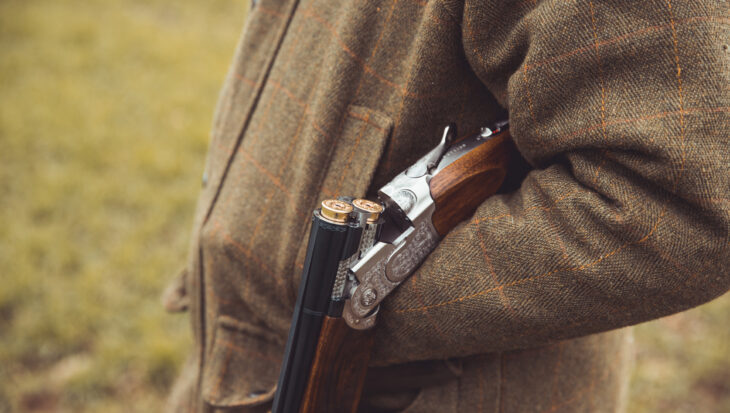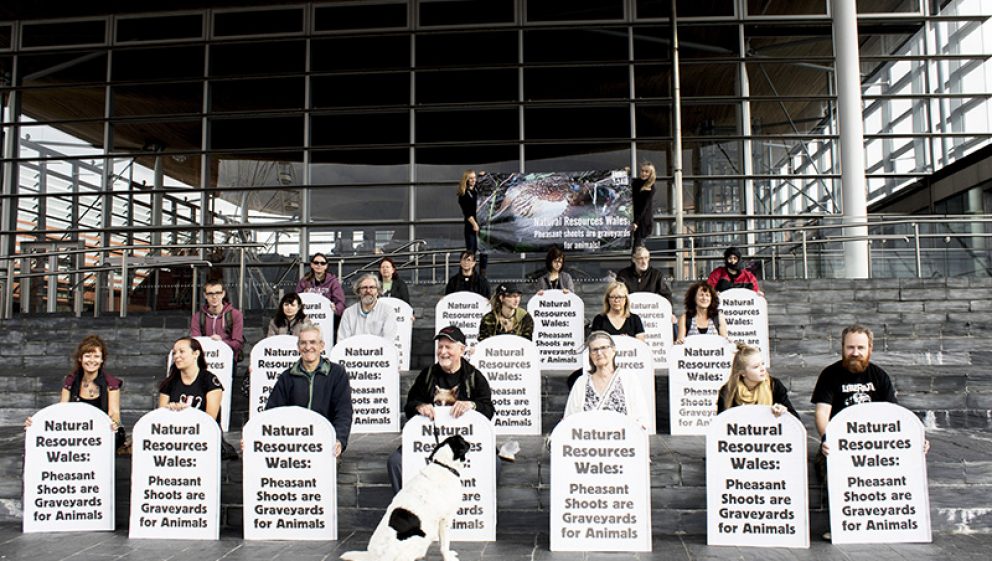Ban on the use of lead shot – finally!
Posted 10 Jul 2025

Posted on the 12th March 2019
Animal Aid is celebrating a decision by Cardiff Administrative Court to uphold a ban on shooting birds on public land in Wales, despite a legal challenge by shooting lobby groups.

On 12 July 2018, Natural Resources Wales (NRW) decided it would no longer allow the shooting of birds for sport to take place on public land it manages on behalf of the Welsh Government and the people of Wales.
That decision came after a lengthy campaign started by Animal Aid in 2015, which was supported and bolstered by colleagues at the League Against Cruel Sports.
The campaign succeeded in persuading NRW to carry out a consultation into the shooting of birds for ‘sport’ by private individuals on public land. The review culminated in a public consultation where 76% expressed support for a ban on shooting birds on NRW land.
However, in response to NRW’s ban, pro-shooting lobby groups – the British Association for Shooting and Conservation (BASC), the Countryside Alliance (CA) and the National Gamekeepers Organisation (NGO) – started judicial review proceedings to overturn NRW’s decision.
On 1 February 2019, the Administrative Court in Cardiff determined that permission to apply for judicial review should be refused on the basis that the claim was not brought promptly and, in any event, it was not arguable.
BASC, the CA and the NGO then renewed their application at an oral hearing today (12 March), but the Court upheld the original decision and it is likely that the claimants will have to pay costs.
Says Fiona Pereira, Campaign Manager at Animal Aid:
‘This is a fantastic victory for the people of Wales and, most importantly, for all the birds who are purpose-bred to be used as feathered targets for shooters.
‘We have documented the miserable lives these poor birds have to endure. Those used for breeding purposes are often incarcerated in horrific, barren cages. We also filmed birds in release pens on NRW land, where our investigator found 35-40 dead young birds in the pens, with others caught in the wire mesh of the cages and facing death by dehydration.
‘There is no excuse to mass-produce animals just so they can be used as target practice. The people of Wales and the Welsh Government have made it clear that they do not welcome this cruelty on their land – and, despite efforts by the bloodsports lobbyists to force them to back down, compassion and justice have won the day.’
Says Bethan Collins, Senior Public Affairs Officer (Wales) at League Against Cruel Sports:
‘The Welsh Courts must be congratulated for upholding Natural Resources Wales’ right to ban pheasant shooting on public land. This outcome reflects strong opposition to birds being shot for ‘sport’ from the Welsh Government and public, who have made it clear wildlife needs protecting from those who would otherwise destroy it for entertainment.
‘It speaks volumes about the game bird shooting industry’s integrity that it attempted to force its way back onto public land against the wishes of the government and public, who do not support factory farmed pheasants being gunned down for “sport” on land managed on behalf of the nation.
‘We thank Natural Resources Wales for standing by its decision and call on other national institutions to announce a pheasant shooting ban on land where the bloodsport has been permitted – starting with the University of Wales.’
For more information contact Fiona Pereira or Isobel Hutchinson on 01732 364546
Natural Resources Wales had leased three parcels of woodland for pheasant shooting, until its ban came into effect on 1 March 2019: Cwmgwnen and Long Mountain Woods (Llanfyllin, Powys); Maesmawr Wood and Llanfair Wood (Powys); Forest Bank Wood and Pant y Ffridd Wood (Manafon, Powys).
Animal Aid’s investigations
Animal Aid investigators visited four sites over a weekend in November 2015, and found numerous pheasants drifting up and down country roads near Maesmawr and Llanfair woods, vulnerable to being hit by vehicles. The evidence pointed to the introduction of feeders onto land where it was not permitted to do so.
On 19 June 2017, when temperatures in the UK had nudged 30ºC, an Animal Aid investigator visited the land leased for shooting by NRW at Cwm Gwnen. Our investigator saw an estimated 35-40 young pheasants, dead on the ground inside a release pen. Equally disturbing were the four birds who had become stuck in between two sections of wire mesh. We believe they must have died from either dehydration or strangulation. Another three birds were trapped in between the two sets of wire mesh but were still alive. Animal Aid’s investigator managed to free them so that they could return to their pen.
Read our press releasePosted 10 Jul 2025

Temperatures are rising and it’s time to get outdoors, enjoy the weather and tuck into some delicious vegan food! Thanks to an abundance of plant-based options now available, there’s an alfresco option for every tastebud...
Posted 09 Jul 2025
